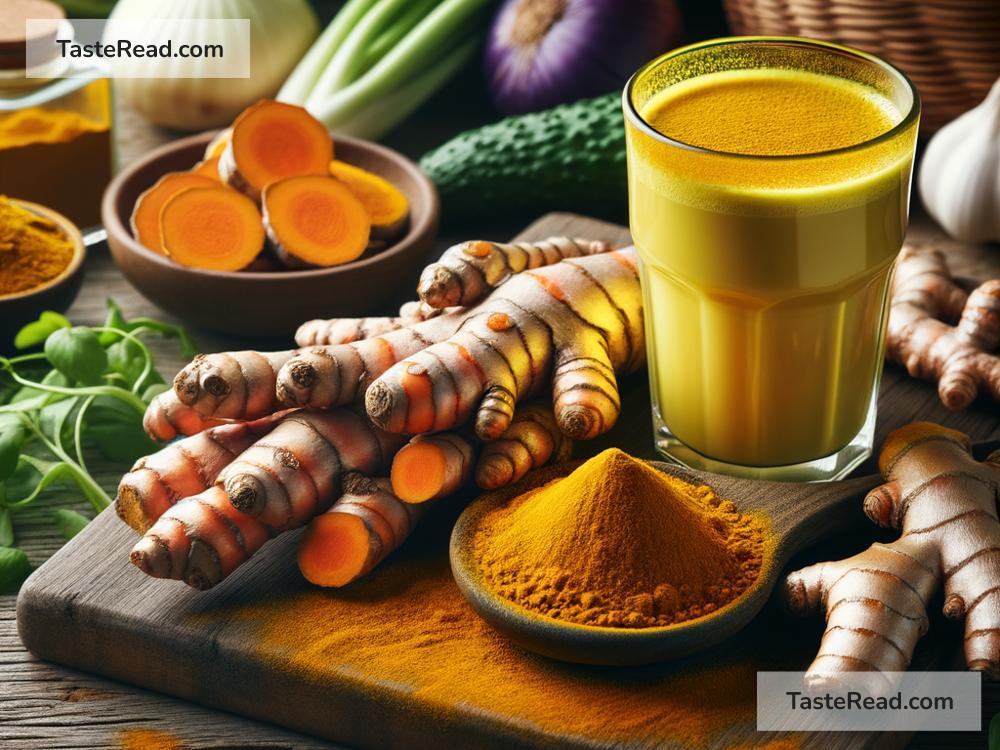Understanding the Role of Curcumin in Health
Curcumin has become a popular buzzword in health and wellness circles, leaving many people curious about its benefits and why it’s being talked about so much. If you’ve heard it mentioned but aren’t sure what it is or how it works, don’t worry! In this article, we’ll explain curcumin and its role in promoting better health in simple, easy-to-understand terms.
What is Curcumin?
Curcumin is a natural compound found in turmeric, a bright yellow spice commonly used in cooking, especially in Indian and Southeast Asian cuisines. Turmeric is well-known for adding color and flavor to dishes like curries, soups, and rice. While turmeric itself has been celebrated for its healing properties for centuries, curcumin is the substance within turmeric that’s responsible for its many health benefits.
Curcumin is technically a “polyphenol,” which means it’s a type of plant-based chemical known for supporting overall health. What makes curcumin special is its strong anti-inflammatory and antioxidant properties, which have been the focus of numerous scientific studies.
Why is Curcumin Good for Your Health?
The health benefits of curcumin are vast and impressive. Below, we’ll break down how curcumin supports your body and mind:
1. It Fights Inflammation
Inflammation is your body’s natural response to injury or infection. For example, when you catch a cold or stub your toe, your immune system kicks in to protect your body by causing inflammation. This is helpful in the short term, but when inflammation becomes chronic (happens all the time), it can lead to diseases like arthritis, heart disease, diabetes, and even cancer.
Curcumin works as a powerful anti-inflammatory agent. It helps reduce inflammation in the body and has been compared to some anti-inflammatory medicines — without the potential side effects. This makes curcumin an excellent option for people looking for natural ways to improve their health.
2. It Protects Against Free Radicals
Curcumin is a strong antioxidant, which means it helps fight harmful molecules in the body called “free radicals.” Free radicals can damage healthy cells and contribute to aging, chronic diseases, and other health problems. By neutralizing these free radicals, curcumin helps protect your body’s cells and keeps them functioning optimally.
3. It Supports Brain Health
Curcumin is also linked to improved brain health. Studies suggest that it can increase levels of a type of protein in the brain called BDNF (brain-derived neurotrophic factor), which is important for promoting the growth and repair of nerve cells. Higher levels of BDNF may help prevent neurological diseases like Alzheimer’s and improve memory and cognitive function. Some researchers believe curcumin might even help reduce feelings of depression and anxiety.
4. It May Lower Risk of Heart Disease
Heart disease is one of the leading causes of death worldwide, but curcumin might help lower your risk. Heart disease is influenced by inflammation, oxidative stress (free radicals), and poor cholesterol levels. Curcumin’s ability to fight inflammation and act as an antioxidant makes it a useful tool for improving heart health. It may also help improve the function of the lining of blood vessels, which is crucial for maintaining healthy circulation.
5. It Might Help Prevent Certain Cancers
Early research shows that curcumin could play a role in preventing or slowing the growth of certain cancers. Scientists think curcumin may interfere with cancer cell growth, but more research is needed to confirm these findings. Regardless, the idea of using curcumin as part of a preventive approach to health is exciting and promising.
How Can You Incorporate Curcumin Into Your Diet?
Since curcumin comes from turmeric, you can simply add turmeric to your meals to enjoy its health benefits. Sprinkle it into soups, stews, rice dishes, or even smoothies for a pop of flavor and color. However, curcumin isn’t easily absorbed by the body when consumed on its own. To maximize its benefits, pair it with black pepper, which contains piperine, a substance that helps your body absorb curcumin better.
Another option is taking curcumin supplements. These contain concentrated amounts of curcumin, making it easier to get a therapeutic dose. If you choose supplements, it’s important to talk to a healthcare provider to make sure they’re safe for you, especially if you’re already taking medications.
Are There Any Side Effects?
While curcumin is considered safe for most people, taking too much might cause some mild side effects like upset stomach or nausea. Additionally, if you’re on medications for blood thinning or diabetes, curcumin might interact with these drugs, so it’s best to consult with a doctor before using it as a supplement.
Conclusion
Curcumin is an incredible compound with powerful health benefits. From reducing inflammation to improving brain health and protecting against chronic diseases, its effects are far-reaching. Incorporating turmeric or curcumin supplements into your diet could be an easy, natural way to support your overall well-being.
Although curcumin isn’t a cure-all, it’s certainly a valuable addition to a healthy lifestyle. Think of it as one small tool in your toolbox for living a balanced, vibrant life. After all, even simple dietary changes like adding turmeric to your meals can have lasting impacts on your health.
So why not give this golden spice a place in your pantry? Your body will thank you!


